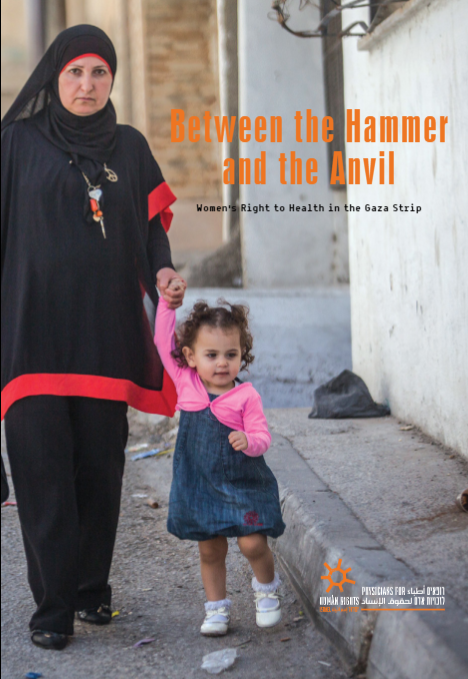March 5, 2019
 A new report by our long-time partner Physicians for Human Rights Israel (PHRI) issued to mark International Women’s Day reveals how the closure of Gaza and the criteria for granting exit permits predominantly affect women patients. The report, titled Between the Hammer and the Anvil, is based on an analysis of hundreds of cases of patients who have contacted PHRI during 2017 and 2018 asking for help in leaving Gaza for medical treatment.
A new report by our long-time partner Physicians for Human Rights Israel (PHRI) issued to mark International Women’s Day reveals how the closure of Gaza and the criteria for granting exit permits predominantly affect women patients. The report, titled Between the Hammer and the Anvil, is based on an analysis of hundreds of cases of patients who have contacted PHRI during 2017 and 2018 asking for help in leaving Gaza for medical treatment.
The findings indicate three main trends:
- Delays and unresponsiveness severely affect the chances of women cancer patients to recover. The 129 cancer patients who contacted us had been awaiting for response by Israeli authorities for many months, sometimes even a year. This delay in accessing healthcare severely affected their chances of recovery.
- An exit permit due to family relatedness to Hamas affects women almost twice as much as men. In the past two years, out of 969 applications by patients in which the reason for refusing the permit was family relatedness to Hamas members, 608 of the refused were women, and 361 were men.
- Denying an exit permit due to a – usually male – relative residing in the West Bank without a permit affects access to healthcare. In most cases of refusal handled by PHRI over the past two years, the relatives who settled in the West Bank rather than return to the Gaza Strip were men. Like many other countries, Israel also pressures relatives, in this case women, in order to achieve political objectives, including by blockading the Gaza Strip.
PHRI concludes that: “Even if the criteria do not specifically target women, once the policy of closure on Gaza carries such devastating gender repercussions – mainly for those vulnerable patients – it must be changed…”
Download Between the Hammer and the Anvil. Women’s Right to Health in the Gaza Strip (PDF)
Source: website PHR Israel
